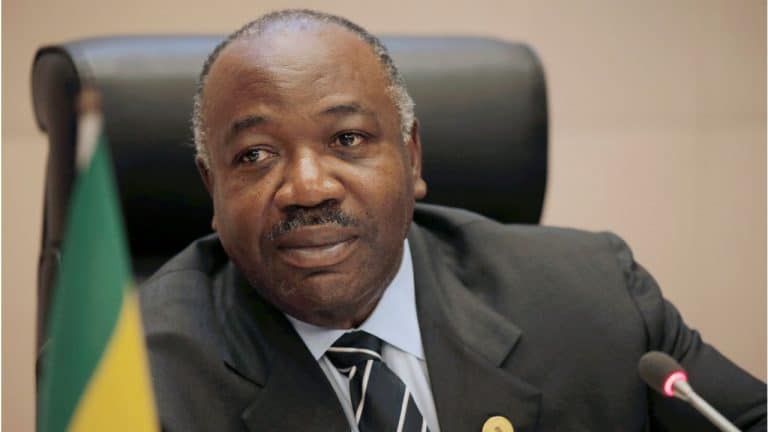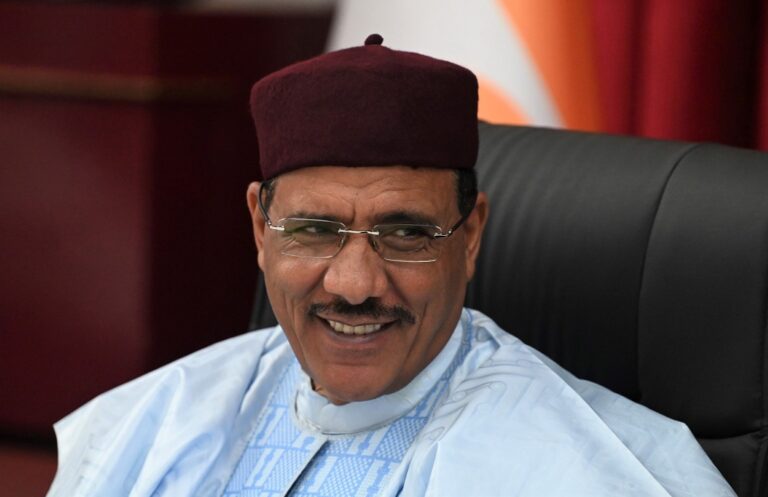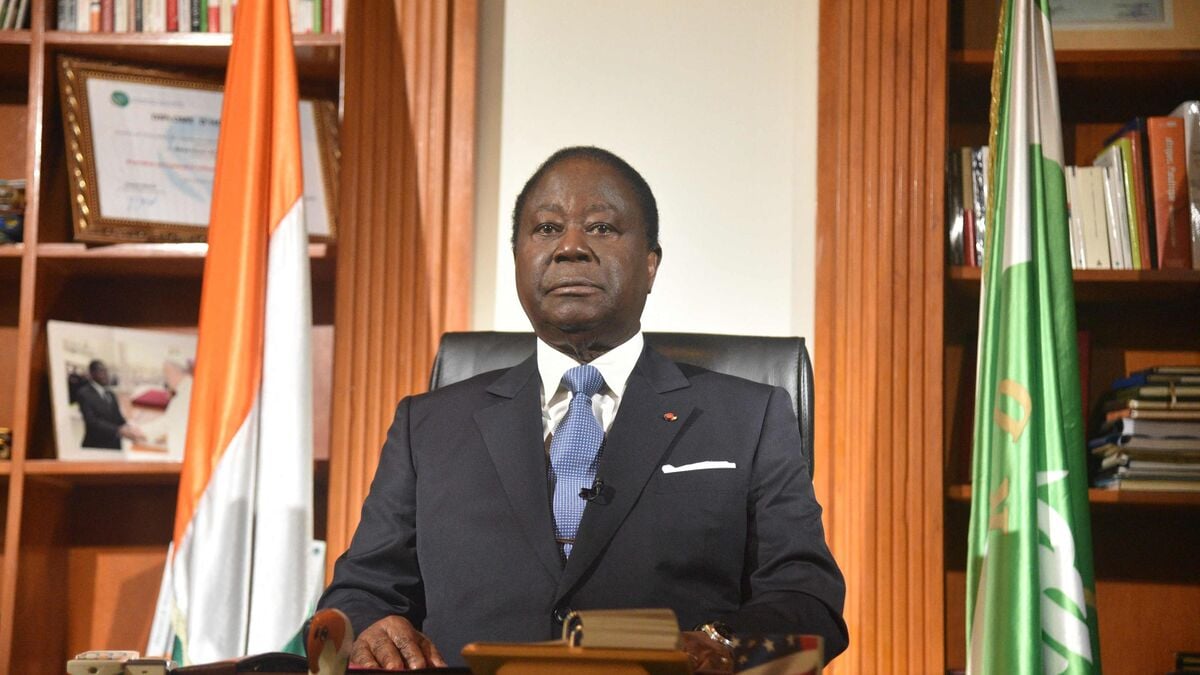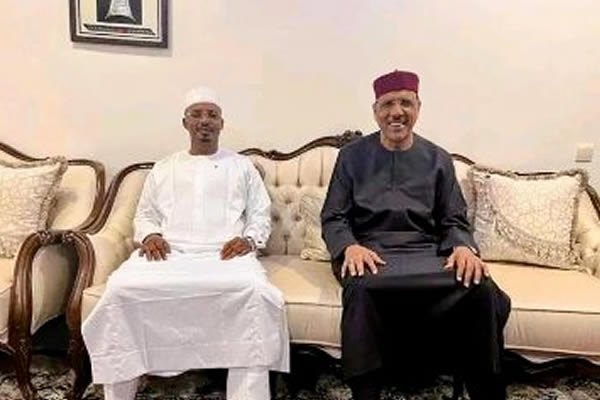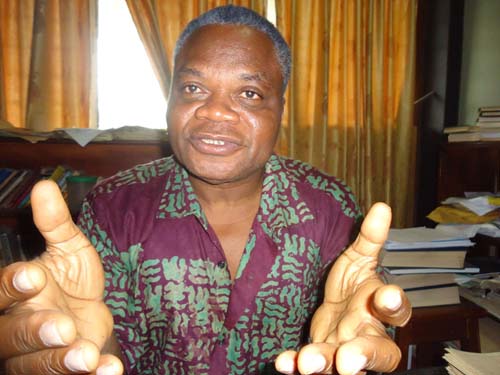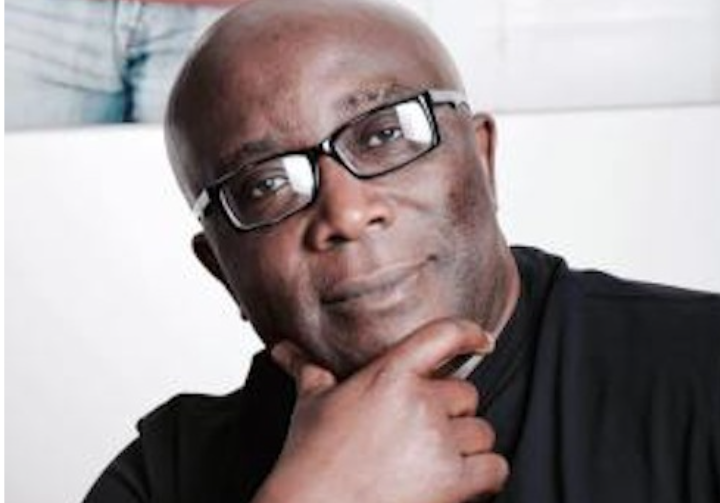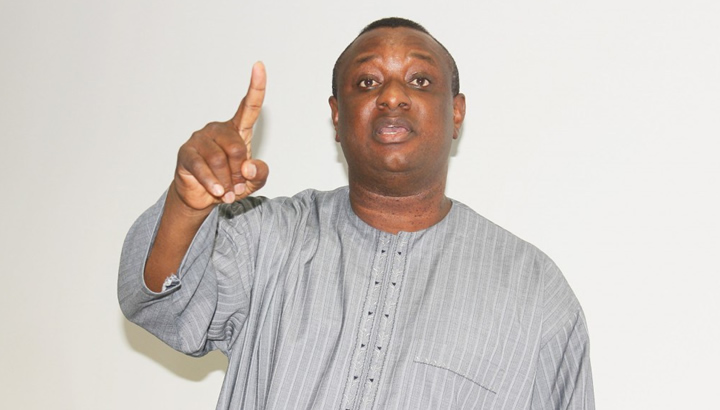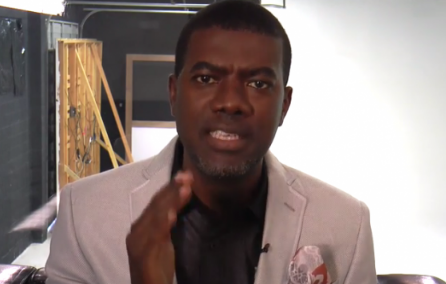President Bola Tinubu has displayed a commendable preparedness to be president. He has, in just one month, shown a keen familiarity with the current state of the nation. In line, he has made bold policy pronouncements indicating an unmistakable eagerness to be different from his tepid and clueless predecessor. Whether it is in the devaluation of the Naira or the dramatic removal of the troublesome oil subsidy, Mr. Tinubu has shown the courage to take charge and an awareness of the burden of power. He has in the process displayed two essential qualities of executive presidency: a sense of direction and decisiveness. He has coupled these with the requisite willingness to engage, negotiate and hear voices from important contending quarters in the nation.
However, the time is still short. Nothing has so far been achieved in concrete terms. The policy directions that have been indicated can in the short term only lead to more hardship and suffering. Both the fuel subsidy removal and the Naira devaluation have already ushered in considerable inflation and cost of living spikes. But Mr. Tinubu is lucky. Eight years of Buhari’s rudderless incompetence prepared our citizens for the very worst. Even the indication that here comes something positively different is enough to inspire patience and endurance. The hope is that with time and popular forbearance, the policies should lead to the desirable direction of a better life for the majority. No one can as yet swear by the blank cheques that the Nigerian populace has issued to the Tinubu administration at this onset of its honeymoon days. While Mr. Tinubu has shown that he understands what our desperate situation requires, the current public mood indicates a society that is willing to give the new president a chance.
But so far, the president has acted and spoken largely through a personal ambit of presidential authority. Soon after inauguration, he spoke alone at Eagle Square when he casually shut off the fuel subsidy. That is a classic demonstration of the loneliness of ultimate power. Since then, he has acted and indicated directions only in the company of a slim collection of advisers and personal aides. But thetime aloud for brash displays of sovereign swagger are running out. There is a limit to how effective presidential authority can be when the machinery of state is run only by a well intentioned president surrounded by a handful of boisterous advisers and enthusiastic foot soldiers.
He now needs to fully constitute a government. Only then can his good intentions and actions reflect the collective wisdom of the nation he is elected to govern. In other words, Tinubu now needs a cabinet to begin translating his statements of good intentions and nice wishes into the tangible actions of a government. It is precisely in the choice of ministers that the prospects of Tinubu’s legacy may lie.
In a representative political setting, erecting a cabinet requires a deft combination of politics and clear executive discerning. The president needs to play the politics of managing our diversity in the choice of those he appoints as ministers. He also needs to navigate the interests of his party and the pressure of other contending parties and interests in the National Assembly. Above all else, he has to inspire the confidence of the local populace inand the international community in the caliber and capacity of those he chooses to run the affairs of the Nigerian state as ministers.
Perhaps inadvertently, Mr. Tinubu has defined the caliber of ministers he needs to activate the promise of his opening policy shots. He wants boldness in policy measures. He wants speed in initiating policies and implementing programmes. He probably wants a reasonable level of credibility and transparency in those who will wear the toga of key state officials. Above all else, his policy indicators imply that his ministers must have the knowledge base, proven capacity, competence and experience to understand the complexity of the issues that urgently confront today’s Nigeria. Without saying so in many words, there is every indication that Mr. Tinubu is in a hurry to catch up on grounds lost by his embarrassing predecessor.
His options are clear and well defined. He either hires a cabinet of politicians, seasoned technocrats or a combination of the two. In a UK-type parliamentary system, his choice would be simple. He would just need to select from among the leading MPs in his party to constitute a cabinet in a relatively short time. But the presidential system and the imperatives of republican democracy offer a different template. It is made even more complex by the sheer expanse and diversity of the Nigerian landscape as well as the rich bank of manpower available in Nigeria at home and abroad.
The simple formula under the presidential system ought to be that once a president is elected, the assumption is that the entire nation becomes his constituency. It is from that wide expanse that he is challenged to choose the best hands and heads to run the affairs of state. He may in theory not be limited by considerations of partisanship. But in reality, the president needs to reward his political party associates and key supporters whose support earned him victory. He also needs to reflect the interests of vital constituencies and special interests. An ally may be a great political mover but a totally useless administrator and hopeless manager of resources and manpower.
In the context of what is emerging as the Tinubu imperative, therefore, the job description and scale of competence of the ministers he needs have been self-defined. It does seem as though he has implicated himself into hiring a cabinet dominated by technocrats, knowledgeable and experienced hands and not necessarily politicians. His record as governor of Lagos state suggests thahe is at his best when he goes out to head -hunt knowledgeable experts and competent hands from across board to run the affairs of state. Will he follow that pattern which has worked for him previously?
All things considered, Tinubu’s options are somewhat narrow. He cannot follow the pure technocrat/intellectual dominant cabinet that we see in a place like Singapore where the cabinet reads like an Ivy League university faculty list of who graduated from which top Western university. The Singaporean model is historical and specific. They are coming from a history of Spartan meritocracy in a foundation laid by their late founder, the great Lee Kuan Yew. They do not have our history of nasty politics and silly compromises and compulsive glorification of mediocrity.
On the contrary, Tinubu’s options are defined by the scope and nature of what he has defined as his priorities. It is also defined by the immediate backdrop of his predecessor for whom a cabinet literally meant no more than a room full of human political furniture. Buhari and his cabinet ruined the nation and brought us to this sordid pass. They did this by just sitting there and doing practically nothing except in a few cases of commendable performance. Minimally, then, Tinubu has to have a better and different cabinet from Buhari. In this sense, the nature of the Tinubu cabinet has been defined by the minuses of the Buhari catastrophe as well as his own early definition of his policy pathway.
In this regard, the president has an immediate model and precedent in the current US cabinet. President Joe Biden literally had his cabinet options defined by the minuses of Donald Trump’s excesses. He won the election on a platform of diversity, competence and character against the background of Donald Trump’s record of bigotry, nastiness, division, incompetence and amorality. So, Biden went for a diverse and very ‘American” cabinet. From his choice of the first African American and female vice president, he appointed a Latino secretary of Homeland security, an openly gay Secretary, a number of women, blacks and youth secretaries. He even has a black Defense Secretary in the illustrious General Lloyd Austin. Deeper down, there is a mixture of a few Democrat political figures as well as very outstanding technocrats and intellectuals from his NSA and Secretary of State, Anthony Blinken.
The immediate Nigerian backdrop in terms of Buhari’s ministers is a disgraceful throwback. It was mostly a parade of anonymity and rank incompetence. Of the few that were recognizable, half were noteworthy for reasons of their public nuisance and notoriety in matters of either crass incompetence or questionable credibility. For some, visibility was more the public consequence of their portfolio rather than whatever content and value they brought to the job that gave them visibility. Admittedly, there were a few good men in the pack.
The majority were a vast uninspiring army of office occupants and seat warmers. There is a slew of viral anecdotes on aspects of the conduct of the Buhari ministerial class. It is said that the former president only saw most of the vast majority of his ministers at the weekly Federal Executive Council meetings where he often has to be reminded of the names of most ministers. Otherwise, most were never summoned to brief the president on their portfolios since there was no brief or marching orders from the onset. They were not required to submit monthly, quarterly or annual briefings or reports on their stewardship. Reportedly, there were no performance targets, no time lines, and no scoring formula to assess which ministers were doing what or who was succeeding or failing in what. In Buhari’s cabinet, 99 percent of the ministers stayed in office for the entire eight years until some had to opt out either from boredom or under the guise of going to contest the 2023 presidential election.
The result was an embarrassing lack of co-ordination in the activities of the ministers. In times of national crises, government acquired many voices. A cacophony of clashing and distressed choristers at the altar of an absentee deity. While trying to defend the same administration, different key officials and ministers presented a chaotic chorus of dissembling voices and competing narratives held together by nothing in particular.
Yet, Nigerians assumed there was a government in Abuja entrusted to cater for their interests and welfare. But to what end? The concept of ultimate responsibility resting with the President was in doubt as the presidential seal of finality was permanently missing. The president was either mostly absent or in detached aloofness. The nation doubted whether in fact anyone was in charge. That is how the theory that Nigeria was a packed flight on a tragic auto-pilot was born.
The handful of ministers who burst into limelight did so by taking advantage of the missing central commanding voice. They seized advantage of the strategic importance of their portfolios to present themselves to the public as isolated islands of activity and performance. The rest, lost in the comfort of their own anonymity, were content with occupying cozy seats, enjoying copious perks and helping themselves to the honey pot of state power and unmerited privilege.
Going forward and given his projected policy trajectory, there is a distinct category of ministers that Mr. Tinubu needs to avoid. This is the category of nakedly ambitious political rabble rousers and noise makers.
The imperative of the hour is work and national recovery from eight years of abysmal leadership and atrocious governance. Tinubu does not need political trouble and noise makers. Nor does he need ministers who will compete for headlines with the president. Under the presidential system, the top political spot belongs to the president. Those who want to clamber onto the president’s mandate to chisel out their own political ambition should have no place in the imminent cabinet. As public parlance puts it, Tinubu only needs men and women who know “the road” of how to manage resources and people in the service of a nation in trouble.
But from the chatter around him, there is a powerful lobby of ambitions politicians lining up in desperate hustle for ministerial jobs. Some of them have even pre-selected their portfolios.
The most conspicuous embodiment of this category is Mr. Nyesom Wike, immediate past governor of Rivers State. This prime advocate of disruptive politics and bill board governance is said to be hell bent on making Tinubu’s cabinet list at all costs. After overturning the boat of his party, the PDP, Wike gatecrashed into reckoning in the winning APC through an electoral abracadabra that is still unfolding.
The rumours say he wants to be minister of works, Niger Delta, police affairs or even defense! Mr. Wike is a Nigerian citizen and a politician at that. He is entitled to change his party affiliation or aspire to any position as a matter of right. But he comes with a baggage full of a wild pedigree of serial betrayals, disruptive behavior, uncouth manners, ostentation, exhibitionism and alleged serial abuse of sundry substances.
Of course, what Wike eats may not give Mr. Tinubu indigestion. But his known political trajectory does matter. Tinubu as the employer of ministers is entitled to establish ground rules as to who qualifies for entry. Mr. Wike is well known to Tinubu. He serially betrayed Mr. Rotimi Amaechi, former Rivers governor, who dredged him from the political swamps and gave him prominence and a gateway to unprecedented visibility, wealth and influence. He revolted and humiliated his political associates in the Rivers State PDP, demolishing businesses, homes and wiping off livelihoods. He intimidated the leadership of the rival APC in the state, hounding most of its leading lights either into internal exile in the state or far away Abuja.
He confronted, serially disrespected and betrayed Mr. Atiku Abubakar, presidential candidate of the party as well as Dr. Iyiorchia Ayu, immediate past chairman. He wanted the presidential ticket of the party and could not secure it. He was also turned down for the number two slot. In revolt, he splintered the party along north-south lines and seceded with a handful of PDP governors to emerge as leader of something called Group of Five. Mr. Wike has a reputation for heading to court against everyone whose actions conflict with his political interests. He is said to be lucky to enjoy the ‘friendship’, loyalty and sympathy of a significant number of judges at every level of the judicial hierarchy.
Mr. Wike and his cohorts are free to join the APC or any other party of their choice. But Mr. Tinubu is too experienced in politics to ignore the antics of a ‘political visitor’ who is likely to disturb the peace of his political household. A man who has betrayed nearly all his significant political mentors and bosses is best kept busy in other ways.
A possible minister with such an ‘impressive’ resume of disruptive behavior and political bad manners may be too dangerous and distracting from the sense of national purpose and focus that Mr. Tinubu has already outlined for his fledgling administration. Of course Mr. Wike is not alone in the fellowship of politics of bad manners. But he stands out in his rampaging national nuisance value and political toxicity to be ignored.
At this hour, President Tinubu is the nation’s No.1 employer of labour in the political industry. He has thousands of jobs to offer to all those he may consider vital to his victory at the polls including Mr. Wike and others. In seeking to dispose of such difficult political wares, the President and his team should also be creative. Everyone does not need to become a minister. There are patronage slots in the rivate sector as well as strategic diplomatic posts. For instance, at a time like this, Nigeria probably needs a bold ambassador at the Kremlin. A Mr. Wike will nicely fit the bill of “Our man in Moscow”.
